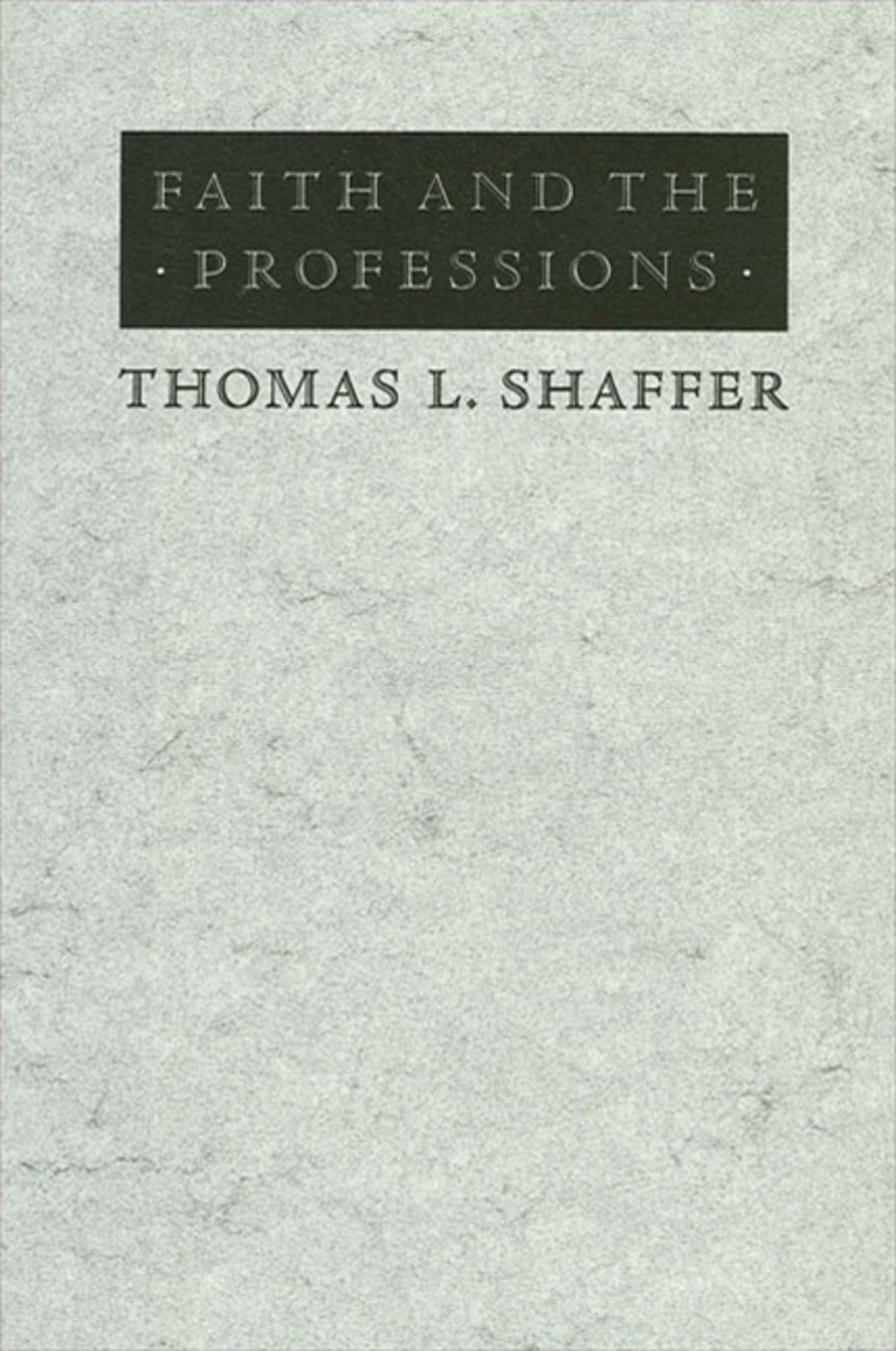We're sorry. An error has occurred
Please cancel or retry.
Faith and the Professions

Some error occured while loading the Quick View. Please close the Quick View and try reloading the page.
Couldn't load pickup availability
- Format:
-
15 December 1987

Thomas L. Shaffer argues that the morals of modern American lawyers and doctors have been corrupted by misguided professionalism and weak philosophy. He shows that professional codes exalt vocational principle over the traditional morals of character; but that, in practice, America's professionals and business people cultivate the ethics of character. The ethics of virtue have been neglected.
The ethical argument in Faith and the Professions is in part an application to professional life of the position taken by Alasdair MacIntyre in After Virtue and in Revisions, and by Robert Bellah and his collaborators in Habits of the Heart. It is also, in part, an argument for the relevance of religious ethics.


"You have a real gem here in my opinion." — Elizabeth D. Gee, University of Colorado
"It makes a significant contribution to the study of professional ethics. It took from this reading a number of interesting and powerful idas that are not so well presented elsewhere." — Carl S. Hawkins, Brigham Young University
Chapter One Stories
Character
Stories
The Study of American Doctor and Lawyer Heroes
Character in Community
One Lawyer's Moral Theology
The Theology of Virtue in the Professions
Chapter Two The Bible
The Gentleman's Ethic
David Hogan
The Bible as a Source of Medical Ethics
The Servant of the Lord
Chapter Three Theology
The Theology of the Two Kingdoms
The Two Kingdoms in American Professional Ethics
The Possibility of Influences between the Kingdoms
The Morals of the Task
The Doctrine of One Kingdom
Chapter Four The Profession
Medicine in Middlemarch
Code before Character
The Law Firm as Moral Teacher
Failure to Teach
Williams and Arrowsmith
The Issue: Work
Character before Code
Chapter Five Dissent
Part One: Dissent
Retail Justice
Dissent as Friendship
Dissent without Friendship
Dissent as Coming Home
Part Two: Friendship
The Issue of Preference
Three Traditional and Positive Arguments for Preferring Friends
Part Three: Gentle Cynicism
Beginning with Persons
Finding Professional Work Worthwhile (as a Social Ethic)
Friendship as a Social Ethic
The Dissenters' Theory of Social and Political Power
Chapter Six Schools
Brother Justinian's Visit
Friendship and Truth
Epilogue Pookas
Acknowledgments
Permissions
Chapter Notes
Bibliography
Index of Names
Index of Stories



